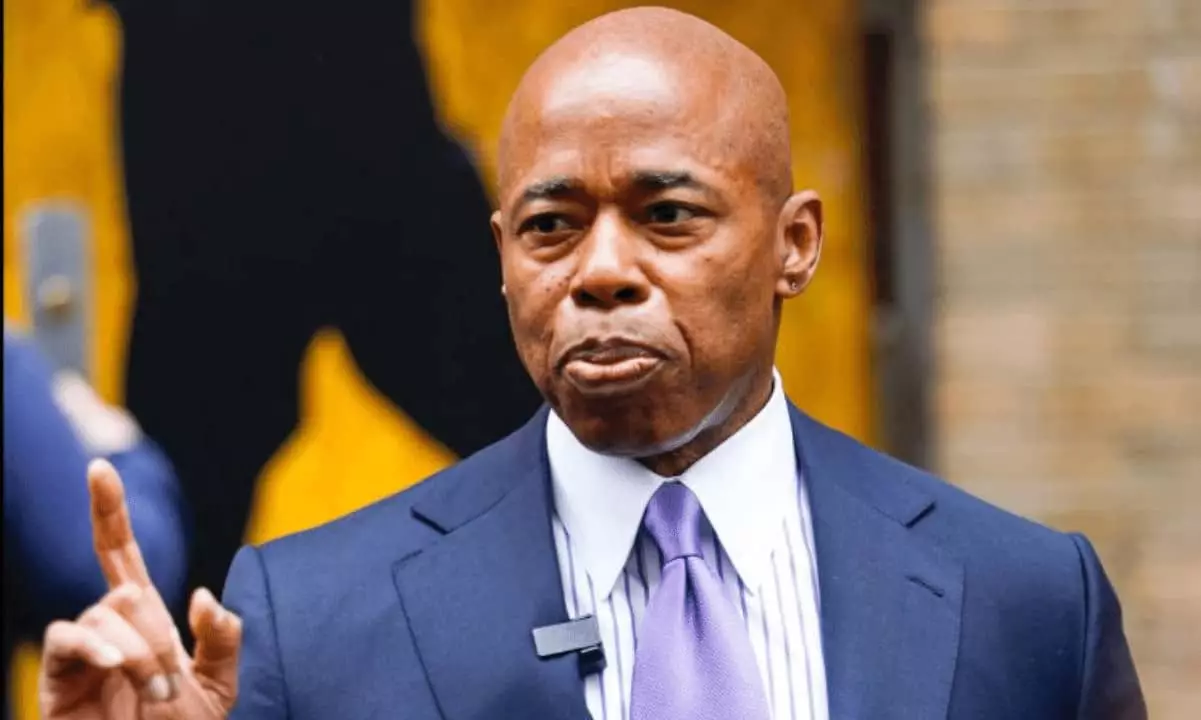Recent events have cast a long shadow over New York City Mayor Eric Adams. Once hailed as a forward-thinking leader and crypto champion, the mayor is now facing the consequences of federal investigations into corruption allegations that have resulted in the resignation of key officials in his administration. This turmoil not only threatens Adams’s career but also raises urgent questions about trust and accountability in local governance.
The news of a sealed indictment against Mayor Adams echoes through New York like a chilling siren, stemming from corruption investigations linked to his administration. Reports indicate that these investigations began to heat up following a dramatic FBI raid on the home of Brianna Suggs, Adams’s chief campaign fundraiser. The investigation centers around suspicious contributions from Turkish government agents to Adams’s campaign, allegedly funneled through intermediaries.
As if that weren’t enough, the turbulence within the city’s halls of power is compounded by the charges against former officials of the New York City Fire Department. Anthony Saccavino and Brian Cordasco have been implicated in bribery schemes, accused of taking substantial sums in exchange for preferential treatment regarding building inspections. Their case adds a layer of complexity to the growing scandal, suggesting a wider network of corruption that may involve multiple arms of the city administration.
Adams’s controversial pledge to accept his first three paychecks in Bitcoin thrust him into the limelight when he took office in 2021. He envisioned New York as a frontier for cryptocurrency, aspiring to position the city as a centralized hub for digital assets. Yet, this innovative stance came with pitfalls. In July 2023, he was forced to amend his annual financial disclosure after failing to report his crypto holdings adequately. The troubling nexus between his cryptocurrency advocacy and the looming corruption allegations illustrates the precarious balance between progressive leadership and ethical governance.
Despite the chilling effect of the FTX collapse on the cryptocurrency market, Adams has approached crypto investment with a tenacious optimism. He argued that downturns are not uncommon in any industry, pointing to his own losses in the stock market as rationale. However, this steadfastness in promoting crypto raises eyebrows—particularly when intertwined with ongoing investigations into his campaign financing.
In the face of allegations, Adams has taken a resolute position, promising to remain in office and assert his innocence. His declaration, “If I am charged, I am innocent, and I will fight this with every ounce of my strength and spirit,” speaks to a sense of unwavering determination. Nevertheless, such defiance also brims with political risk, as the city’s citizens yearn for transparency and integrity from their leaders.
While Adams’s legal team has asserted confidence in his innocence, the situation unveils deeper questions about the mechanisms of power within the administration. The exit of several high-ranking officials, including the police commissioner and the mayor’s chief advocate, suggests a climate of fear and uncertainty that could destabilize City Hall.
The fallout from these allegations not only jeopardizes Adams’s political future but also has broader implications for governance in New York City. Vulnerabilities in the system that lead to corruption, especially when entwined with financial practices involving cryptocurrencies, call for reevaluation of oversight mechanisms. The public trust, already fragile due to political scandals, could suffer severe damage if substantial evidence surfaces against Adams.
Adams’s tenure illustrates the peril of marrying innovative policies with ethical ambiguity. Although his ambitions to transform New York into a cryptocurrency hub resonate with some optimists, skepticism remains rampant, fueled by the current climate of distrust. Moving forward, the mayor’s decisions—as well as the actions taken by federal prosecutors and city officials—will be watched closely, serving as a bellwether for ethical governance in one of the world’s most influential cities.
As New York City remains poised on the cusp of crucial decisions, the fate of Mayor Adams embodies the ongoing tension between innovation and integrity. His rise to the forefront of cryptocurrency advocacy alongside emerging corruption allegations serves as a cautionary tale for leaders everywhere. In this ever-evolving landscape of governance, the people of New York deserve accountability and ethical leadership to restore their faith in democracy. The coming months will be critical, as all eyes will be watching how this saga unfolds and what it means for the future of the city.
















Leave a Reply